We may receive a commission when you use our affiliate links. However, this does not impact our recommendations.
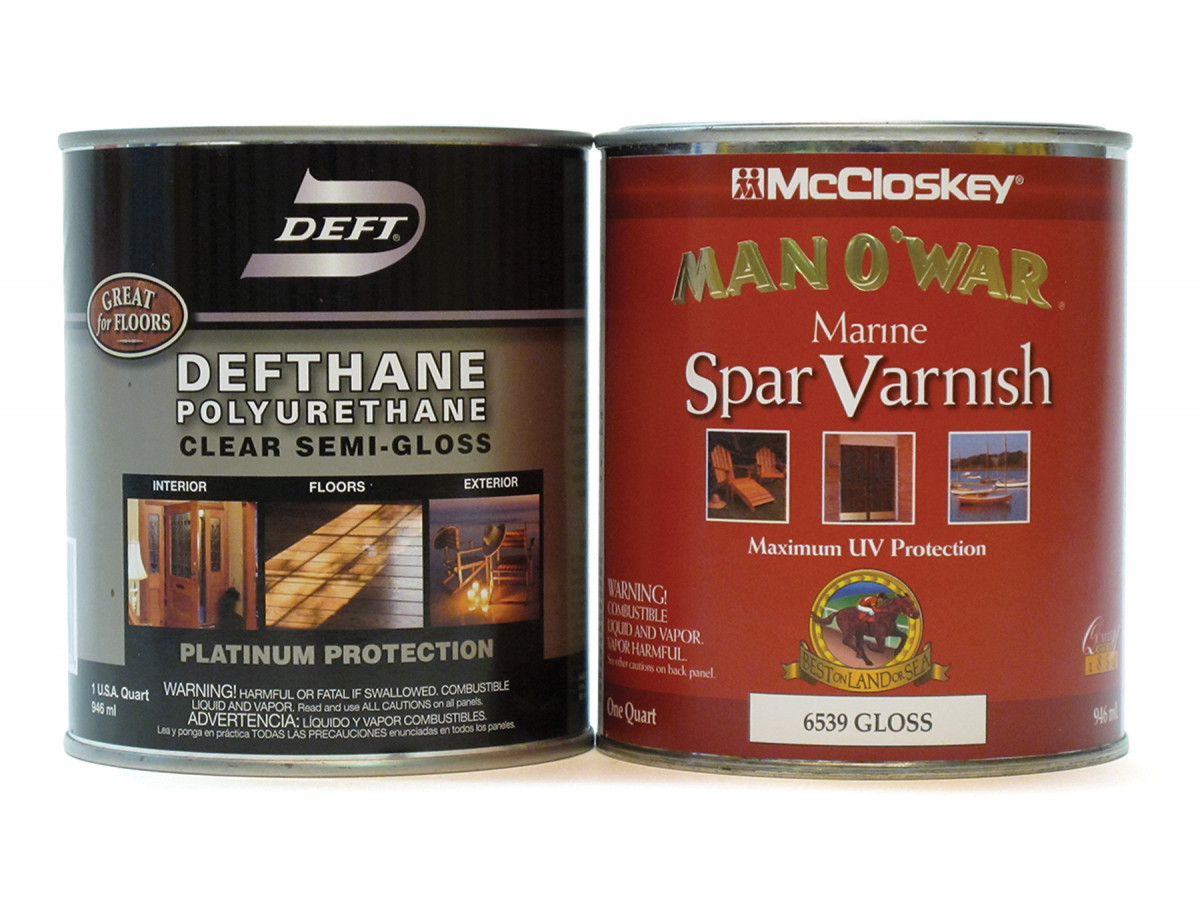
PCBTF. Deft and McCloskey varnishes comply with SCAQMD regulations limiting them to 27.5 percent non-compliant VOCs by using 50 to 60 percent of the solvent PCBTF, which is exempt.
Air quality initiatives affect coatings availability in different areas.
From the December 2016 issue, #229
Four years ago in this column I explained how VOC regulations are putting restrictions on large users of finishing products and causing changes to formulations affecting all users. I concluded that only the large users are directly affected by the regulations, but small users like you and me may be indirectly affected.
This would happen if formulations change so the products apply and perform differently. Or the products could disappear from the shelves altogether. Four years later, it’s obvious that both are happening. Even though you may not be affected yet, it’s a pretty sure bet that you will be in the near future.
The area of the country with the strictest regulations is the four-county air-quality district around Los Angeles. For the last 50 years, these counties, joined together as the South Coast Air Quality Management District (SCAQMD), have instituted increasingly strict coatings regulations in an effort to reduce pollution (smog).
As a frequent visitor to Los Angeles where I have family, I can attest to their having succeeded very well. Smog has been significantly reduced. But I would submit that the role of paints and finishes in contributing to the pollution is, and has always been (even when oil-based paints and varnishes were the standard), minimal to the point of approaching zero percent. The main culprits are cars and industry.
That editorial comment aside, until electric vehicles replace gasoline vehicles, and renewable energy replaces hydrocarbons, we’re probably just going to have to live with increasing restrictions.
How VOC Restrictions Come About
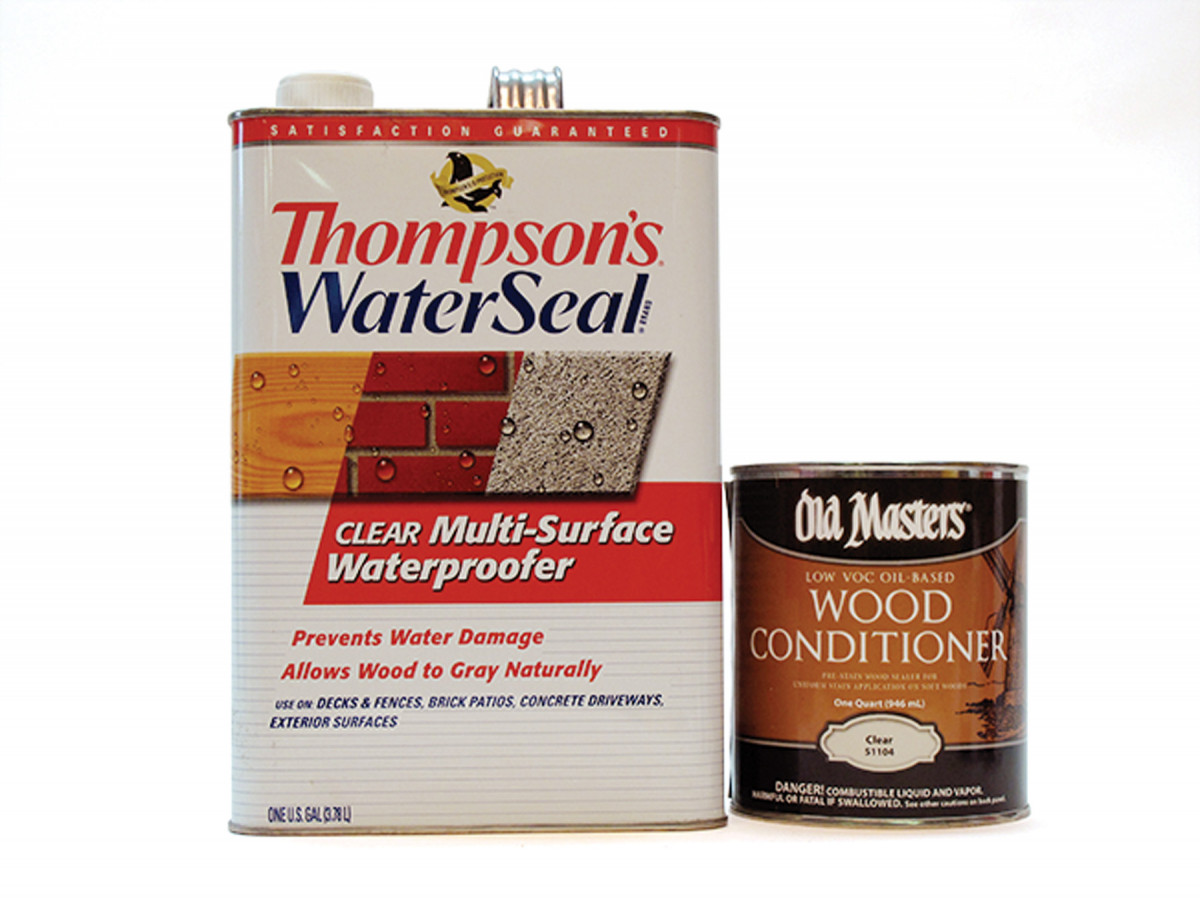
Oil. Thompson’s WaterSeal and Old Masters Wood Conditioner comply by reformulating to be about 90 percent oil: paraffin (mineral) oil in WaterSeal and linseed oil in Wood Conditioner. The compliant formulation of WaterSeal is sold everywhere. Old Master’s sells two different products.
Legislatures, city councils and other governing bodies pass laws setting up bureaucracies with instructions to clean up the environment, including the air. The bureaucracies, composed of well-meaning people going to work every day and doing their jobs, push the limits of what the coatings industry can accommodate to lower polluting VOCs in stains, paints and finishes.
There is actually a lot of communication and even cooperation between these bureaucracies and coatings companies as they push against each other to find solutions that are acceptable to both.
Keep in mind that a coatings company is not put at a disadvantage to rival companies when all companies have to comply with the same regulations. Each company just has to keep up with the latest technologies.
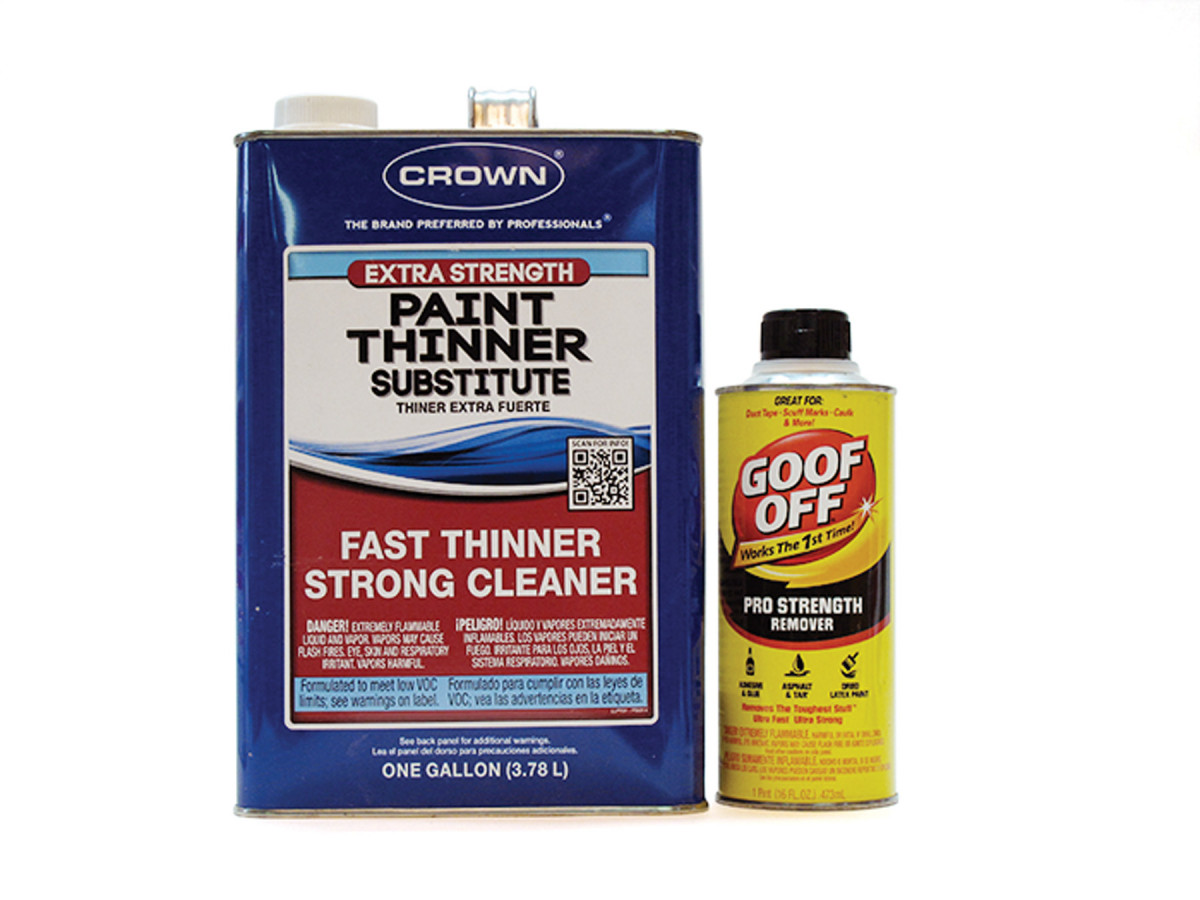
Acetone. Crown Paint Thinner Substitute and Goof Off comply by using the exempt solvent acetone. This could cause big problems for users familiar with old formulations because acetone will attack and damage most paints and finishes. The compliant formulation of Goof Off, used to remove latex paint spatter, is sold everywhere.
When other areas of the country see what has been accomplished in Los Angeles, they sometimes follow suit. So, at this point, all of California, greater Phoenix and Salt Lake City, and most of the states in the Midwest and Northeast have instituted some restrictions. Everywhere, the restrictions continue to get tighter.
Even in nearby (to me) Oklahoma City, where “the wind comes sweeping down the plain,” there are now air-quality alerts, so we cannot realistically expect this trend to turn around anytime soon.
Impact
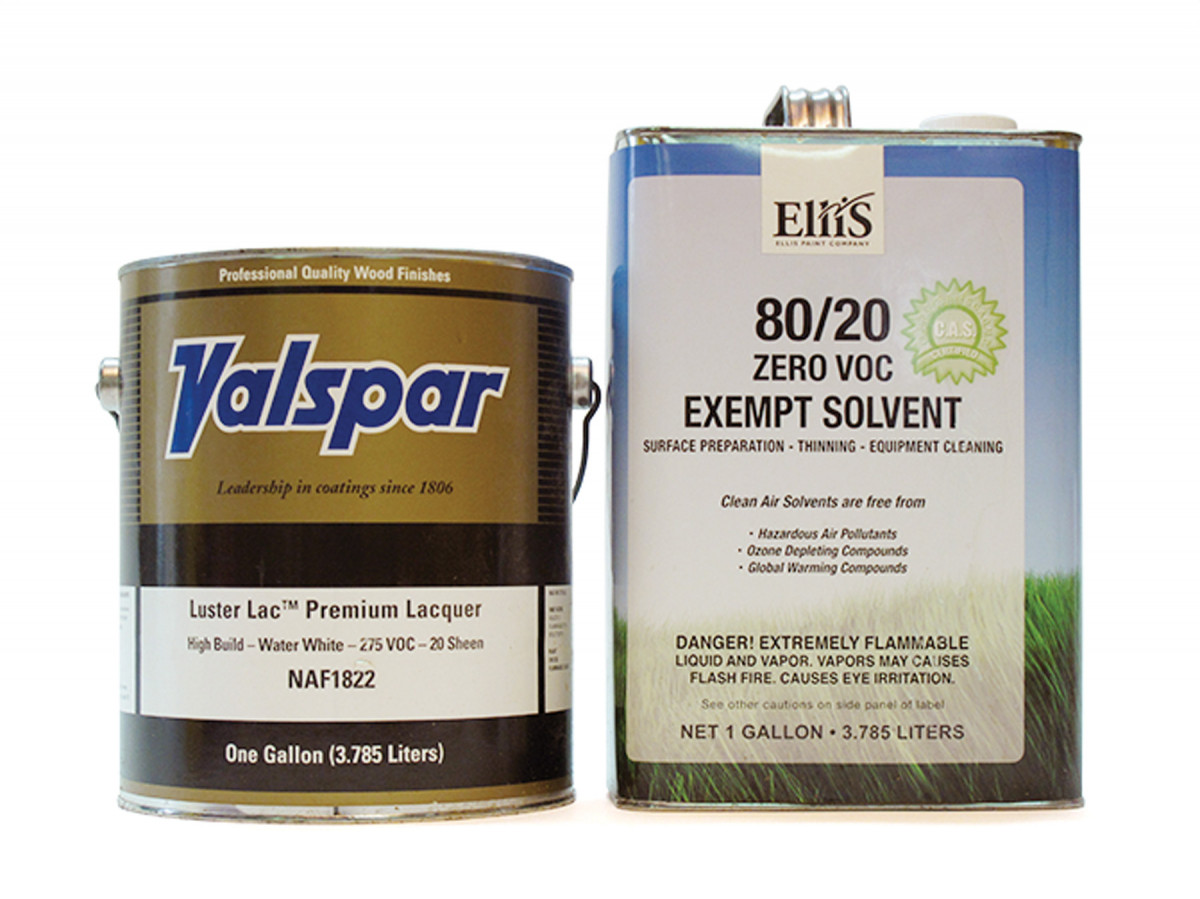
More acetone. Lacquers are made compliant (no more than 275g/l VOCs, or 27.5 percent) by including large amounts of compliant acetone, which causes the finish to dry much faster. Compliant lacquer thinners are made the same way.
The impact of tighter regulations is three-fold: Finishing becomes more difficult; finishes become less protective and durable; and there is huge confusion everywhere because the regulations are often so difficult to interpret.
Concerning difficulty, most people are forced to use water-based products, and these are harder to use primarily because of the high water content, which raises the grain of the wood and is so affected by temperature and humidity. Everyone I talk to in Los Angeles who does finishing complains about the increased difficulty of using water-based finishes.
Another complaint is that water-based finishes simply aren’t as protective or durable as solvent-based varnishes and catalyzed-lacquer finishes. To deal with this, many professional shops make “runs” to areas, sometimes out of state, to pick up products that can’t be sold in the four-county district. Doing this, of course, is illegal, and the fines are high if they get caught.
Concerning the confusion, everyone seems to have their own ideas of what is legal and what isn’t. Even the inspectors who come around to paint stores don’t seem clear on this. I don’t think I talked to one paint-store owner or clerk who could explain to me why they could sell the solvent-based products they stock, which seemed to me to be out of compliance.
Manufacturers
This bothered me a lot, but I think I finally figured it out. It’s the manufacturers who are in touch with the bureaucracies and who are responsible for compliance. The paint stores just sell what they are provided. They have no incentive to learn the “why.”
I find it interesting how various manufacturers figure out how to comply. There are essentially three ways:
■ Substitute compliant solvents for non-compliant and sell these everywhere (manufacturers don’t like making different products for different parts of the country).
■ Reformulate entirely.
■ Just stop selling in the strict areas where they are out of compliance.
Compliant Solvents
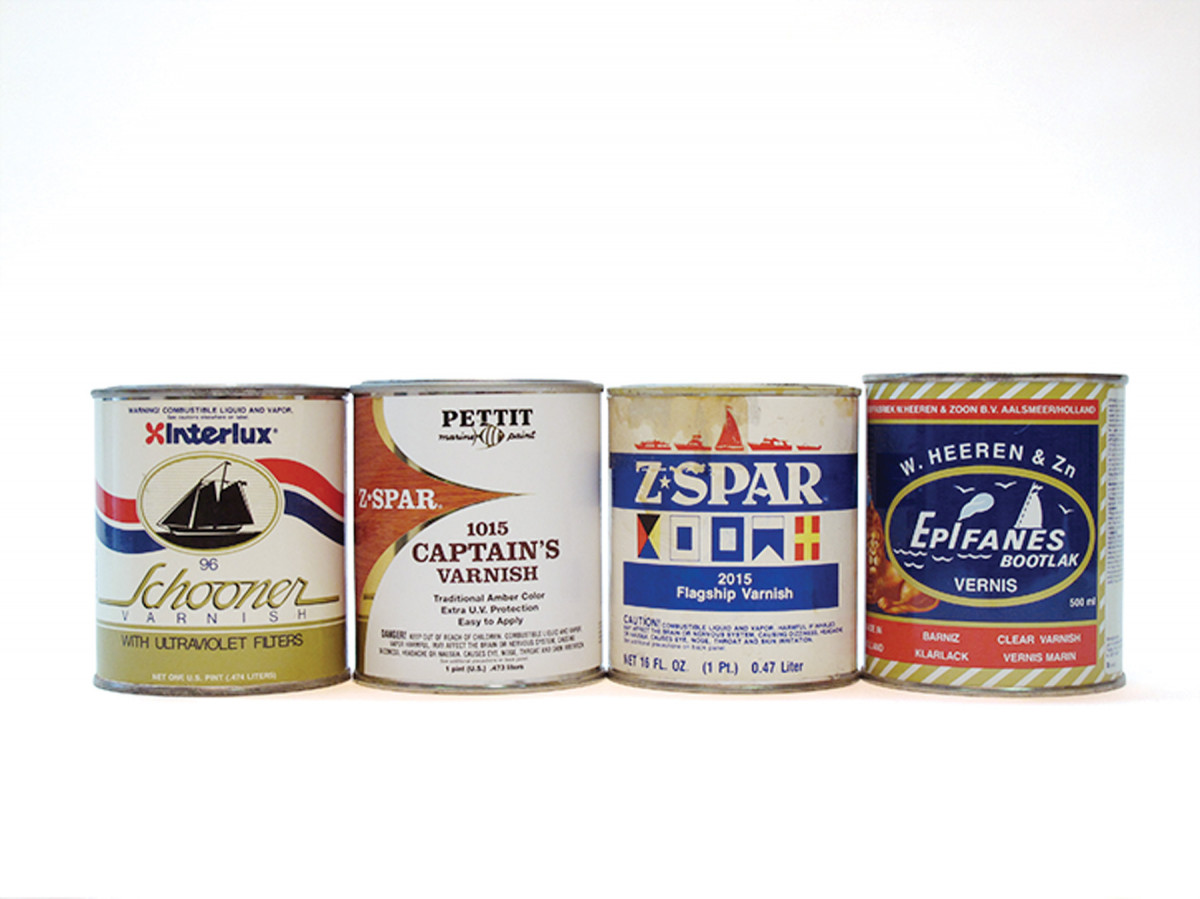
Marine varnishes. No one in Los Angeles marinas could explain how they were allowed to sell varnishes that had to contain too much polluting solvent because they didn’t contain PCBTF. Finally, I located a separate regulation that allowed marine varnishes to contain as much as 49 percent non-compliant VOCs.
As I explained four years ago, there are two primary solvents that have so little reactivity they have been made exempt as VOCs. Manufacturers can legally use all they want of these two solvents. They are acetone and parachlorobenzotrifluoride (PCBTF).
Acetone is used in many products but especially in lacquers. The problem with acetone, though, is that it evaporates so rapidly that some slower “tail” solvents have to be added to lacquer so it can be sprayed.
PCBTF is used in varnishes. So I was able to find Deft and McCloskey varnishes in quarts and gallons with 50 or 60 percent PCBTF. All companies could do this, but I guess they just choose not to. They limit themselves to areas with looser requirements. Waterlox, for example, explained to me that they don’t think their products work well enough when they meet the restrictions, so Waterlox simply doesn’t sell in SCAQMD.
My Predictions
I don’t think this chaos can go on for much longer. As I mentioned, manufacturers don’t like making one formulation for one area and another formulation for another. So, as some of the examples in the pictures show, they simply formulate for the most restrictive areas and sell the product everywhere.
I also don’t think the situation where people have an easy drive to get coatings that don’t comply where they live can continue for long. Eventually, the federal government in the form of the EPA will step in and create the same regulations for everyone. This has already happened in Europe. PWM
Bob is author of “Flexner on Finishing,” “Wood Finishing 101” and “Understanding Wood Finishing.”
Here are some supplies and tools we find essential in our everyday work around the shop. We may receive a commission from sales referred by our links; however, we have carefully selected these products for their usefulness and quality.








